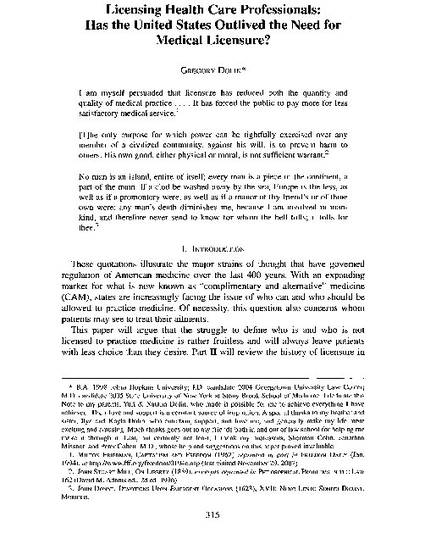
With an expanding market for what is now known as "complimentary and alternative" medicine (CAM), states are increasingly facing the issue of who can and who should be allowed to practice medicine. Of necessity, this question also concerns whom patients may see to treat their ailments.
This paper will argue that the struggle to define who is and who is not licensed to practice medicine is rather fruitless and will always leave patients with less choice than they desire. Part II will review the history of licensure in the United States. Parts III and IV will focus on benefits and problems of restrictive modes of licensure prevalent in most states, respectively. Part V will briefly outline recent developments in CAM. Part VI will develop and critique several alternatives to restrictive licensure, and Part VII will briefly touch on how informed consent plays into the potential change in accreditation that this paper proposes.
